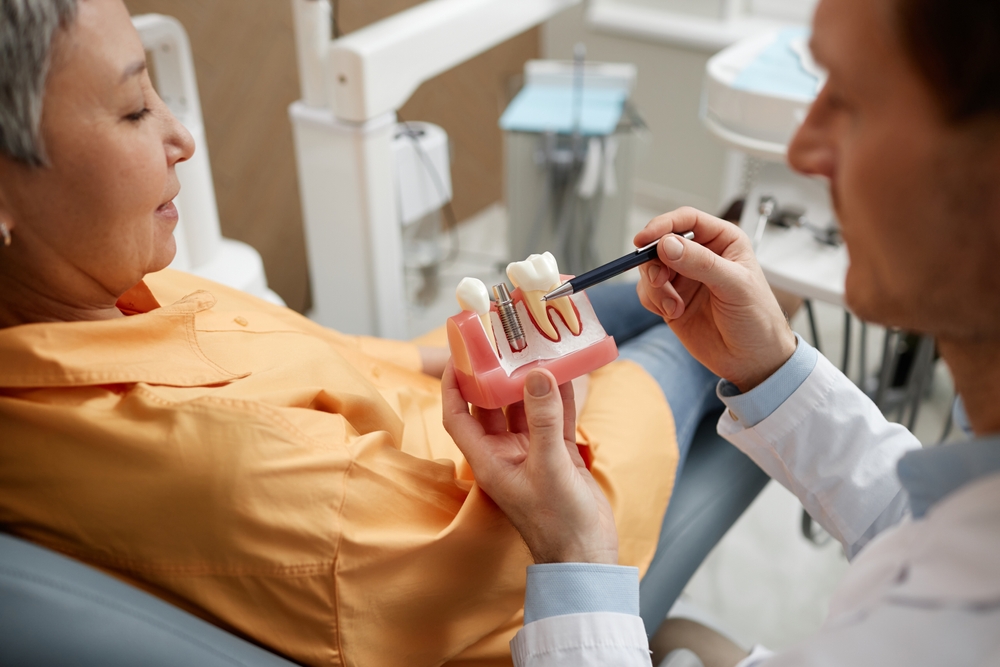
Dental Implants – An Overview | South Gate
What is a bone graft?
If the implant site has signs of bone loss after tooth extraction, your dentist may place a cadaver or synthetic bone at the site in order to build up the bone tissue and achieve a solid base to support the implant. This process is referred to as alveolar bone grafting, and takes 2-6 months to heal before you can proceed with implant placement. If the site has no bone loss, the dentist may use a different bone graft, known as “onlay bone graft” that is placed above the existing jawbone. But when there is sufficient bone tissue after tooth extraction, the implant may be placed immediately without bone grafting, in a procedure known as “immediate implant” placement.
What is sinus augmentation?
Sinus augmentation or sinus lift is a procedure that involves raising the sinus floor and performing a bone graft into the sinus (where there’s a space in the skull) to ensure there’s enough bone tissue to support the implant. This procedure may be necessary if the implant site is in the upper jaw (maxilla) in the back, where the maxillary sinus is located.
Are dental implants safe?
Dental implants are safe, and even considered the standard of care for replacing missing teeth. The techniques used in placing dental implants have been polished for many decades. More importantly, the 98% success rate of dental implants is attributed to careful planning for each individual patient to ensure that you’re healthy enough to undergo dental surgery and heal and recover properly.
What factors do you consider when planning dental implant surgery?
When planning your dental implant placement surgery, your dental team will review all vital elements of your health, including infections, allergies, bleeding disorders, existing medical conditions, and current medications before proceeding with the treatment.
What happens if there are complications with the procedure?
Failed implants are very rare, and may occur in the unlikely event of overloading the implant, fracture of the implant, infection, damage to surrounding tissues, poor bone quality, or poor implant position. But a carefully planned procedure by a qualified dentist can help avoid all of these risks. Failures are so rare, they’d have to be evaluated individually for a solution.
For more information on dental implants in South Gate and to find out the cost of your individual treatment, please contact us today.



